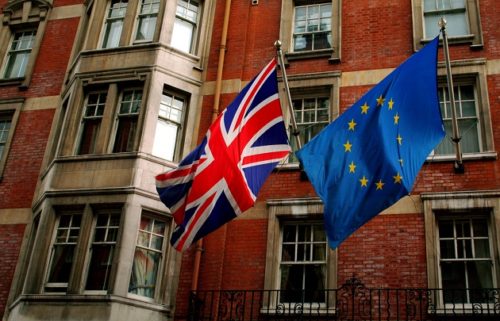
There is only one way to describe my feelings when I learned that the United Kingdom would be leaving the European Union: Astonishment. Disorientation. Shock. Could this really be happening?
I didn’t expect to feel so emotionally invested in the outcome of the Brexit referendum. I had barely paid attention to it in the months leading up to the vote. The fact is, I assumed the outcome was a foregone conclusion: Of course Britain would stay in the EU. To think otherwise was almost as silly as imagining the secession of Texas from the United States.
Obviously, I was quite wrong. Britain has been part of the EU and its predecessors since long before I was born, and it seemed only natural to me that they would remain. It seemed inevitable. Shows you how much I know!
In the days since Britain voted Leave, I’ve been gone through several stages of reaction and reflection. My first response was disbelief and disappointment. I didn’t want the UK and the EU to break up. I have friends across Europe, and I’ve always had a deep admiration for the political, economic, and cultural union that they have built in recent decades.
I was also deeply disturbed by the anti-immigrant sentiment that drove at least some of the Leave voters. I felt frustrated that right-wing parties throughout Europe are using the Brexit vote to further their authoritarian, hyper-nationalist agendas.
As I processed my grief, I also had the opportunity to read some alternative perspectives, which highlighted how the elitism and greed of global neoliberalism has set the stage for Brexit. I came across a particularly eye-opening piece written by Glenn Greenwald, which helped me gain a better understanding the structural brutality of neoliberalism in the European context. There are real injustices being perpetuated under the flag of the European Union, similar to those being experienced by billions of others under the neoliberal economic regime.
And yet, I’m still mourning Britain’s withdrawal from the EU. Despite all of the problems with the European Union – and there are many! – I remain inspired by the European vision of an open society, where citizens can travel, work, and trade across national borders. The borderless society of the EU is something that I wish the whole world could experience.
Even as I mourn a setback in this dream, I’m also feeling grateful. The fact is, before Brexit, I had a lot of false assumptions about how the world works. For all the pain and discomfort this process will cause, Brexit has helped make me more aware of the real hardship, frustration, and emptiness that is driving the populist backlash that we are seeing around the world.
Even in the midst of this unraveling, I’m finding reasons for hope. Illusions are falling away, and we each have an opportunity to witness the truth. Our global society is convulsing in birth pangs. Something new is struggling to be born, though we can’t even fathom what it is yet. In the midst of Trump vs. Clinton, Leave vs. Remain, and all the many For and Against arguments that face us, we are invited into an alternative way of love, mercy, and justice.
It’s scary. Nobody knows what’s about to happen, whether it’s the birth of a new age or the escalation of a global war. We’re living through an unpredictable, highly combustible moment in history. We didn’t ask for it, yet here we are. What role will we play?
For those of us who have chosen to follow the Lamb, now is the time for courageous open-heartedness. In these times of growing crisis, the world around us will continue to whip itself into a fever pitch of fear, accusations, and violence. If we’re not careful, we’ll go right over the edge, too. But we have a greater calling, if we’ll choose to embrace it.
In this time of panic, we can be loving helpers, people who see through the smoke of confusion with the eyes of hope. We can tend the wounded, comfort the brokenhearted, and continue the work of building a new society in the shell of the old. Never before has kingdom of God been needed so much. It’s a shimmering, life-giving reality that bubbles just beneath the surface of these dark times.
The political authorities of this world – the EU, the UK, the United States, and all the other entities that vie for our allegiance – are passing away. What is emerging? It’s hard to describe it. But to use the old words: The kingdoms of this world are become the kingdoms of our Lord, and of his Christ; and he shall reign for ever and ever.
The kingdom is coming now. Can you sense it? It’s right here, bubbling up in our child-like hope and joy. The kingdom is alive in us, refusing to let fury and fear have the last word. Will we take the next step?
Related Posts:
What the Orlando Murders Say About America